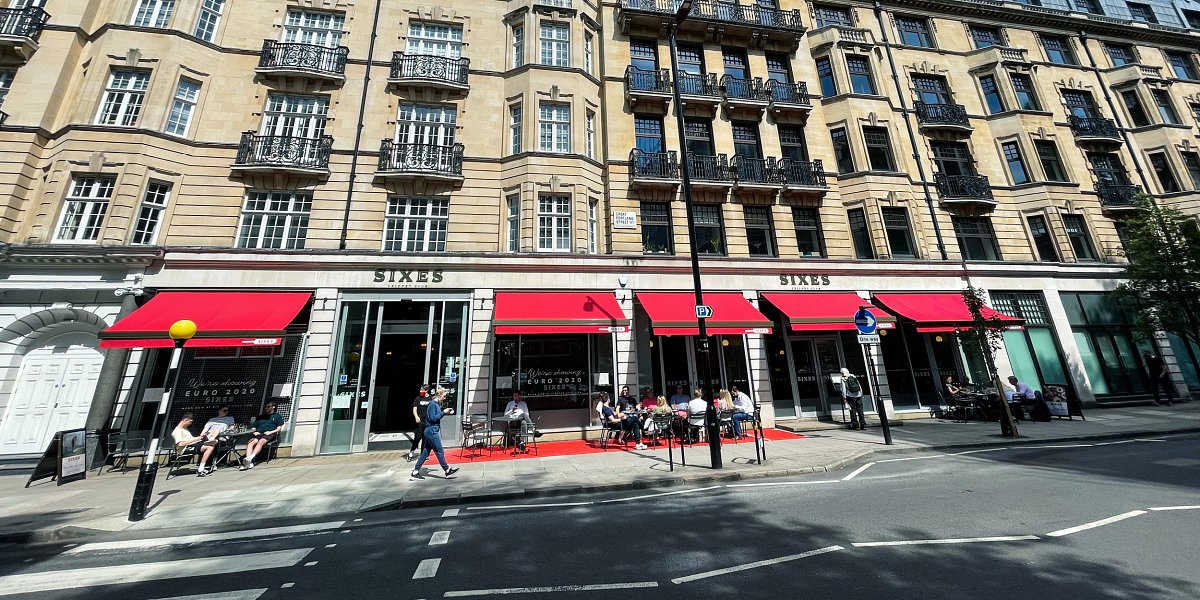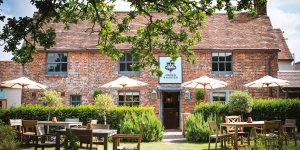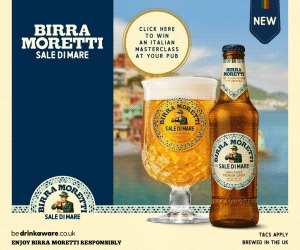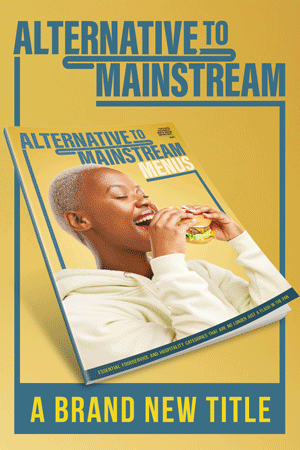Sixes Cricket Club operator profile
From wild game and hunting to fast bowls and smoking guns, Andy Waugh, co-founder of Sixes Cricket Club, talks Pub & Bar through a nationwide concept in the making.
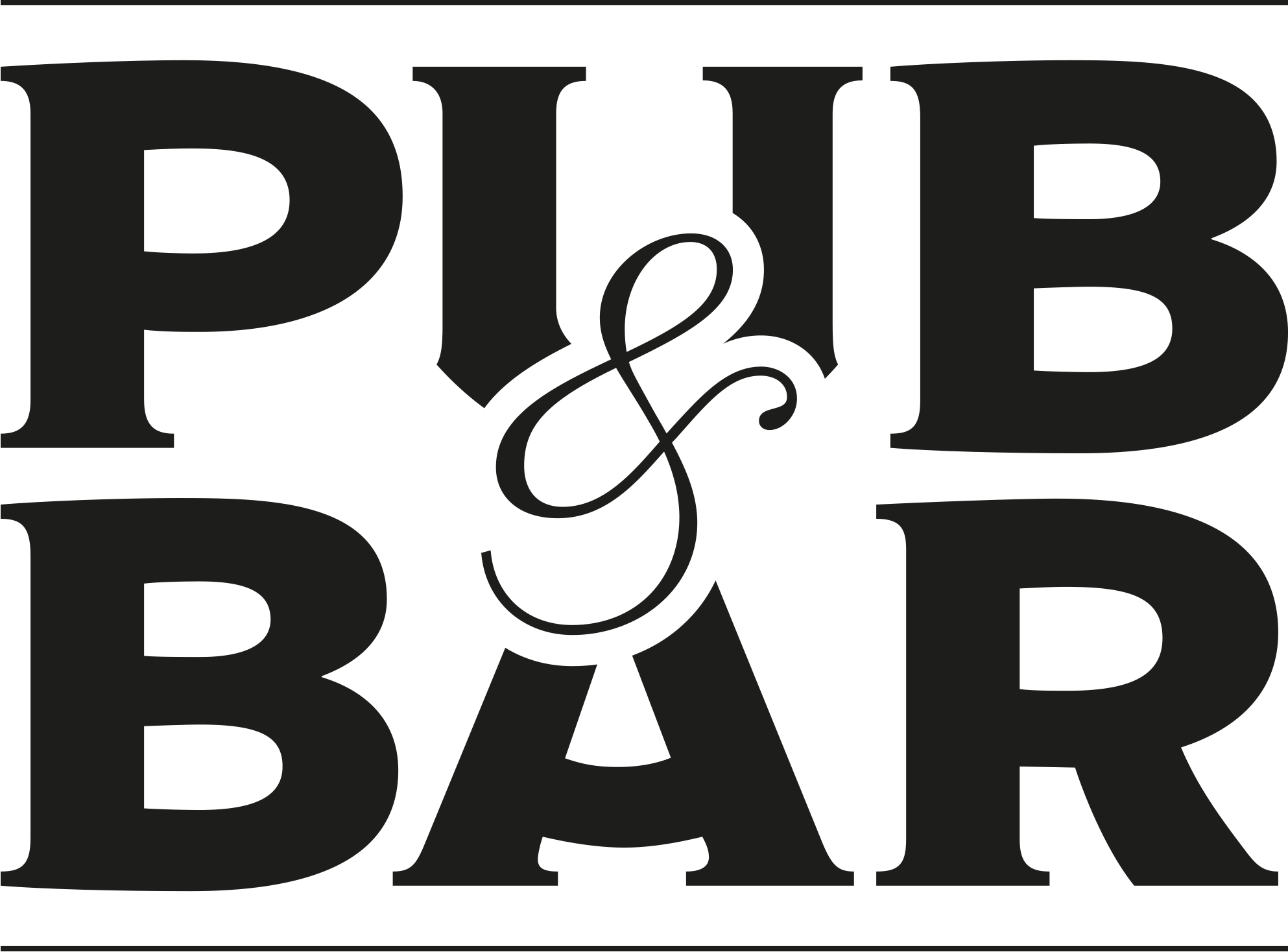
Andy Waugh is an infectious character. Whether he’s talking about his love of fire cooking, why all farmers should be millionaires, or the plans for Sixes Cricket Club – his relatively new social entertainment concept – it’s tough not to get swept up in his fervent Scottish tones. When combined with his seemingly ever-present smile and unquestionable passion for the sector, you can see how his genuine excitement over authentic hospitality has got him to where he is today.
Where’s that? Well, to name a few highlights, he and long-time business partner Calum Mackinnon turned a wild game-based street food business into Mac & Wild, London favourite and previous National Burger Award winner. There he introduced Smoky Barrels, a virtual hunting game which diners could play in the Fitzrovia restaurant basement – this would be the stimulation for creating Sixes. The pandemic saw him co-launch Restaurant Kits, a national e-commerce site that delivers signature dishes and drink kits from top UK restaurants – Adam Handling, Gordon Ramsay et al are all signed up. Now, for the first time in his career, he is embarking on the national rollout of a concept in Sixes, a social entertainment cricket experience complemented by high-quality food and drink. Oh, and then there’s the matter of launching Smoky Barrels in Virginia, USA (see box). Anything else?
“I’m working on one or two other social-based ideas,” he tells me when we catch-up. “I love scribbling down ideas all the time and planning for what might be next.”
Those ideas are to be kept secret for now, though. Waugh is here to talk to me with his Sixes hat on, sat in between meetings (regarding the purchase of industrial clay ovens and “sick barbecue kit” for all his sites), chipper as always at the chance to chew the fat. We’ll get to his meat-eating philosophies later on, but for now let’s get to the matter at hand.
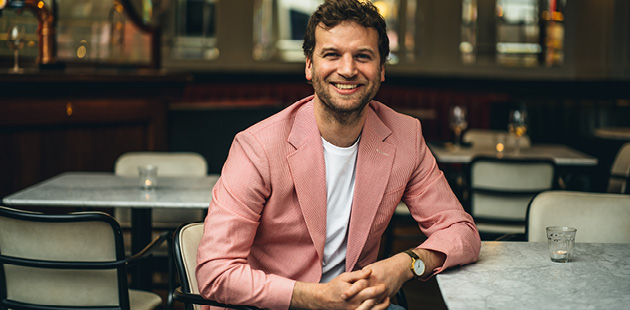
Sixes Cricket Club co-founder Andy Waugh
How’s that?
So how does it work? Well, Sixes is to cricket what Flight Club is to darts, what Puttshack is to minigolf, Bounce to ping-pong. It’s the latest in on-trade concepts that continues to astonish (this journalist, anyway) through just what can be achieved by combining hospitality, gameplay and technology. At the Sixes venues (two so far – Fulham and Fitzrovia) there are cricket nets decked out with screens, targets, bats and balls. On-screen, a bowler will approach you with a determined run-up, and as he is about to release a wicked spin or challenging fast bowl at you, a real ball is delivered out of the screen and towards the poised Sixes visitor. If you connect with your bat, the aim is to hit targets within the net and tally points throughout your overs. It’s competitive and, Waugh tells me, immensely popular. So how did the idea come about?
“It was on the back burner for a few years,” he says. “A whole new genre of hospitality is upon us. I would love to take full credit for the idea, but Calum came up with it. At Mac & Wild we had Smoky Barrels in the basement and we could see the model of competitive socialising was working – there was a constant upside to it and it was always generating revenue. But hunting is quite a niche product in the UK – Brits are not big on it, even though we should definitely be reconsidering our values on that. I said to Calum I had another idea… fishing! Tech-enabled fishing! He said: ‘Andy, I’m going to stop you right there, because I too have another idea, and it’s cricket.’ And I was like: ‘Yeah, that’s a better idea.’ We found BatFast, who put the tech together, and devised an exclusivity deal with them on the concept.”
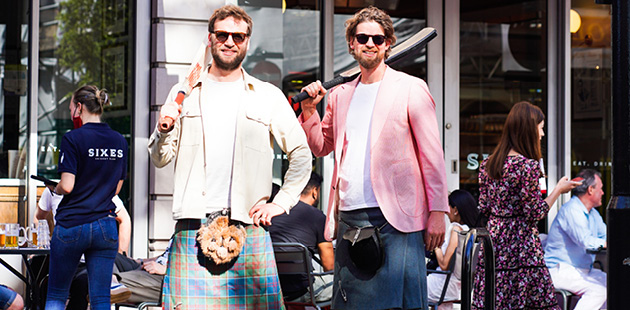
Waugh with co-founder Calum Mackinnon
As experienced as Waugh is as an operator, a cricket-led gastropub concept is a bit leftfield for him. This is why the relationship with the tech provider was so key – you do the tech, we’ll take care of the food and drink. After all, isn’t the F&B where the financial opportunities lie?
“With Sixes, at the moment, people are coming for the cricket and then decide whether to eat there or move on to another restaurant,” he explains. “Our food is amazing, I’m really proud of it, but people have snacks and beers, not the three-course meal we can provide. When Smoky Barrels was in Mac & Wild, people would have three courses and then play the game and have some drinks – it really worked as a business. That’s what we’re aiming for. We decided to do gastropub food to sit alongside the cricket, which worked, but I don’t buy into it as a chef – I find it hard to put my heart on the line with it as much, so I’m considering just cooking the food I love, rather than following a guide. Going forward, it will be British barbecue food, which we need to come up with a term for.
“I’d say our games are about 25% of revenue, food and drink the rest. From a business model point of view, if you only have two people in a net, the spend per hour is much lower than, say, six. We’re now doing Saturday brunches and we’ve got a couple of promotions lined up. We’re going to do some activations this year at Lords at the India Test match, then at Pub in the Park, I think. We’re working hard to get the name out there. These things don’t happen overnight, so people need to find out about us.”
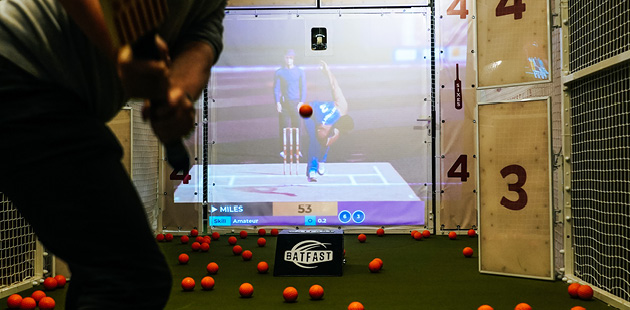
Inside the nets at Sixes
Fast delivery
Sixes debuted after taking over a pub in Fulham. It launched in December 2020 and, you guessed it, quickly closed because of Covid-19. Like thousands of others, it finally traded again from May, with the second site in Fitzrovia opening later that month. While Covid thwarted triumphant festive trading, the reality is that the pandemic has paved the way for rapid Sixes expansion and favourable rent negotiations. It’s a familiar story, one that many operators have told Pub & Bar – with so many closures across the industry, there are myriad sites up for grabs with those either just starting out or with considerable growth plans. With the newly created Sixes hoping for 30 UK sites over the next five years, it seems Waugh’s brand sits in both camps.
“With the way the industry crashed and big sites becoming available, the power moved from landlord to tenant,” he says. “Instead of us paying a premium on a site, we were getting capital contributions. Sites were coming up all over the country, so we decided to push the button on Sixes.
“We did Fulham first to prove the concept, putting two nets in there. It’s an old pub with a red brick bar. It’s a perfect first site. Fulham is around 4,000 sq ft, Fitzrovia is around 12,000 sq ft, so we have four nets there, and are about to put a fifth in. Then Manchester opens this month, then Oxford after that, then another London site by the end of the year.”
Throughout the past 19 months, the negative anecdotes around landlord/tenant relationships have more often than not laid blame at the owner’s feet. However, when I question Waugh about the shift of power he speaks of, doubting how much sway a tenant really has, he is quick to counter.
“When the rent moratorium was extended, some tenants were saying to the landlords that they’re not planning on trading again, but if they want them out, the landlord needs to pay them to leave, otherwise the landlord won’t be taking rent from any new tenants. It’s happened at a site we’re looking at. I suppose this is a time to show your cards and be a bit ballsy.”
Delivering 30 sites in five years requires some cash, something Sixes seemingly has no problem obtaining. It’s backed by Promethean and its group of shareholders include former Aston Martin and Coca-Cola chair Penny Hughes, as well as a few ex-cricketers. Waugh is careful not to namedrop too many, but he tells me David Nash and Sir Andrew Strauss are backing the venture. In fact, it was Nash that introduced them to Hughes. Despite the deep pockets, he assures me Sixes and Smoky Barrels do not have blank cheques sat beside them, knowing full well he and Mackinnon have to prove the businesses to the people who are funding the ventures. Surely, if they could receive feedback on Sixes from anyone, it would be ex-England cricket stars?
“Sir Andrew Strauss missed the first three balls,” he laughs. “But, yeah, they love it. A lot of cricketers come in to have a game.”
Food boundaries and organic spin
My conversation with Waugh covered a lot of ground, and as passionate as he is about his business ventures, I could feel the intensity of his words increase when we happen to move onto food ethics within the UK. It’s a bit of a shift away from the topic at hand, but the farming and agriculture soapbox is one he is quick to leap onto. I ask him why he didn’t choose virtual hunting game Smoky Barrels as the concept to roll out in the UK, given its proven success within Mac & Wild? Little did I know where the answer would lead. For context, before the reply, readers should know that Mac & Wild’s primary meat supplier is Ardgay Game, the Highland game butchery business owned and run by Waugh’s family. In fact, growing up in this environment was the impetus for launching Mac & Wild in the first place.

Food at Sixes
“The Brits and hunting is such a class thing,” Waugh says. “Liberals don’t like it and don’t like what it stands for. I take a lot of joy in discussing food ethics with people. Wild venison is the world’s greatest meat on all levels – we need to be eating more of it, and that’s why we shouldn’t see hunting as this posh, upper class, Ranger Rover-driving day out, banging your chest and killing anything in sight. Most deer are shot by trained hunters who have to shoot the deer, because they’re overrunning the land and they’re pests.
“Most people would rather their meat came in a plastic tub from the supermarket, which says ‘organic’ on it. That’s not meat. It’s not what they think it is. They want to eat something with as much quality as wild venison, but they don’t want to eat wild venison because it’s too cute. It’s so fucked up. We eat more processed food than anywhere else in Europe, and we’re so disconnected from ingredients and cooking. Farmers should be driving around in Ferraris. We should be paying through the nose for their produce. It’s why I love this fire approach we’re using – you can connect to cooking. It’s a pure way of eating.”
But it’s an expensive way of eating, isn’t it? He knows that customers would purposely head to Mac & Wild for dinner because they appreciate the sourcing and quality of the food, supporting the approach and paying the price as a treat. But when your plan is to run a national chain of branded sites, serving the same menu, can you really maintain such a high level of standards and expect consumers to pay the premium this produce demands?
“If we get to 30 sites, then I think we take it in-house and set up our own butchery,” says Waugh. “We’ll select from specific abattoirs and farmers, so we have our own contacts and know where it’s all from, and, you know, we’ll just have to pay more.”
Given his operational history and family connections, an in-house Sixes butchery seems like a pretty straightforward, not to mention sensible, addition to make. You only need to look to Honest Burgers to see how beneficial such an investment can be. After listening to his zealous spiel on farming (see box) and food, I was left pondering if Sixes could perhaps be the next level of social entertainment concepts? Quality drinks are no stranger to Flight Club and co, but if the gameplay is solid and the service just as smooth, it’s the food that can set such venues apart. Meticulous menus combined with decent drinks and a few overs of cricket… who wouldn’t want to take a swing at that?

